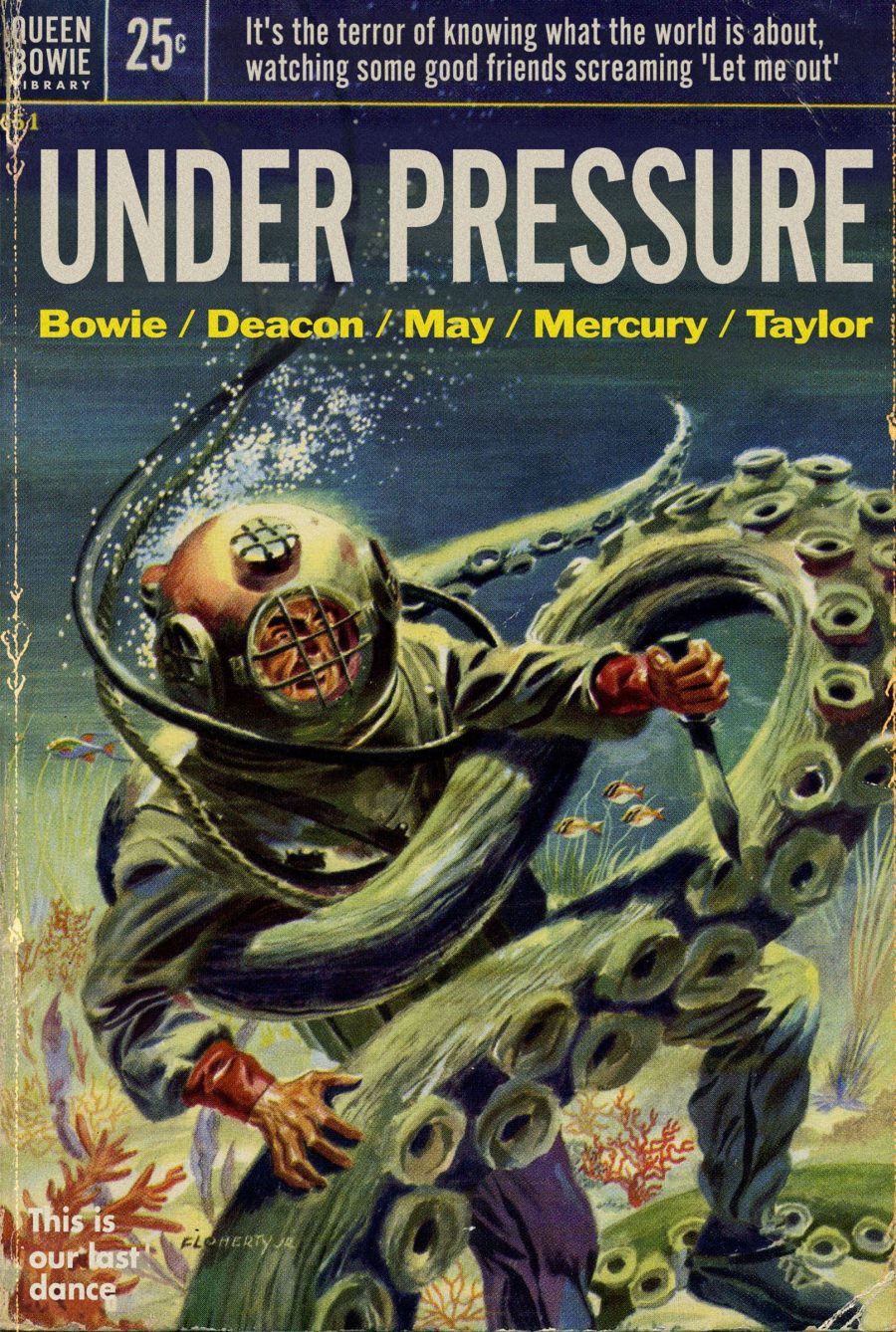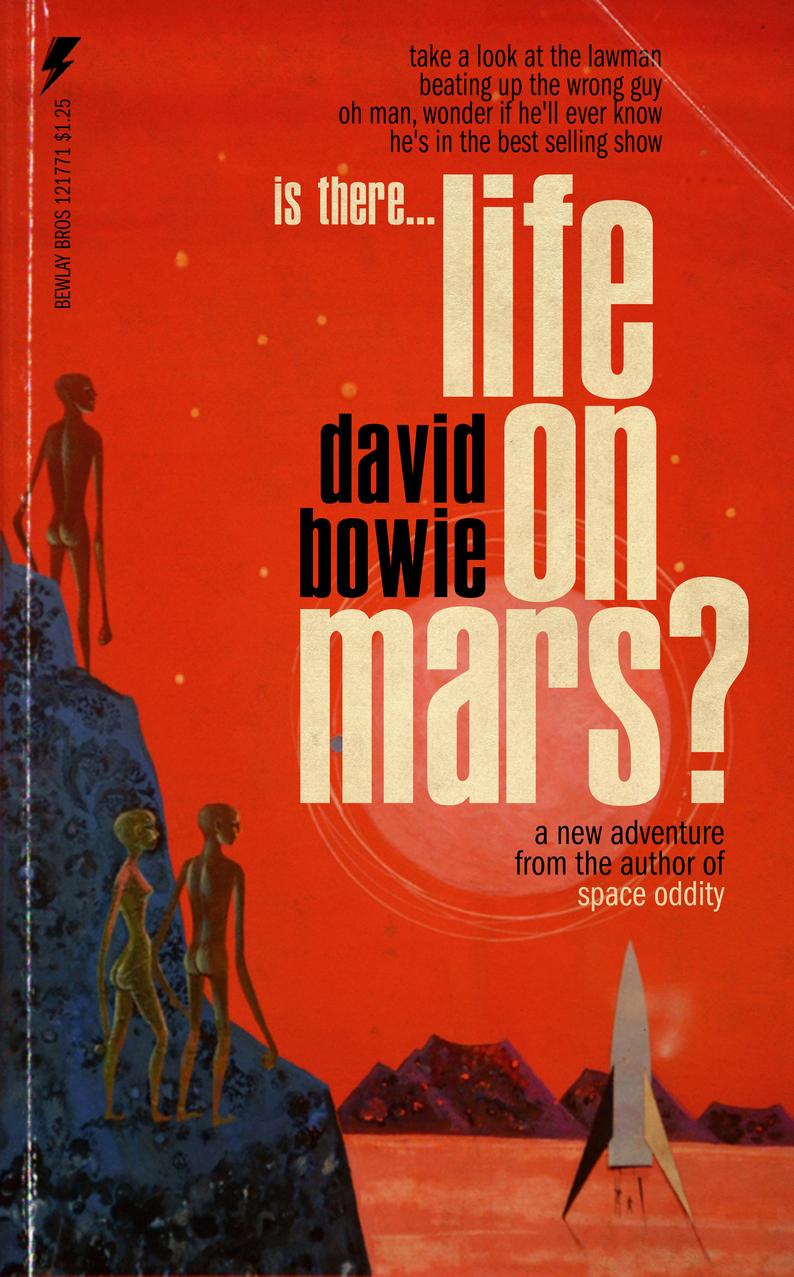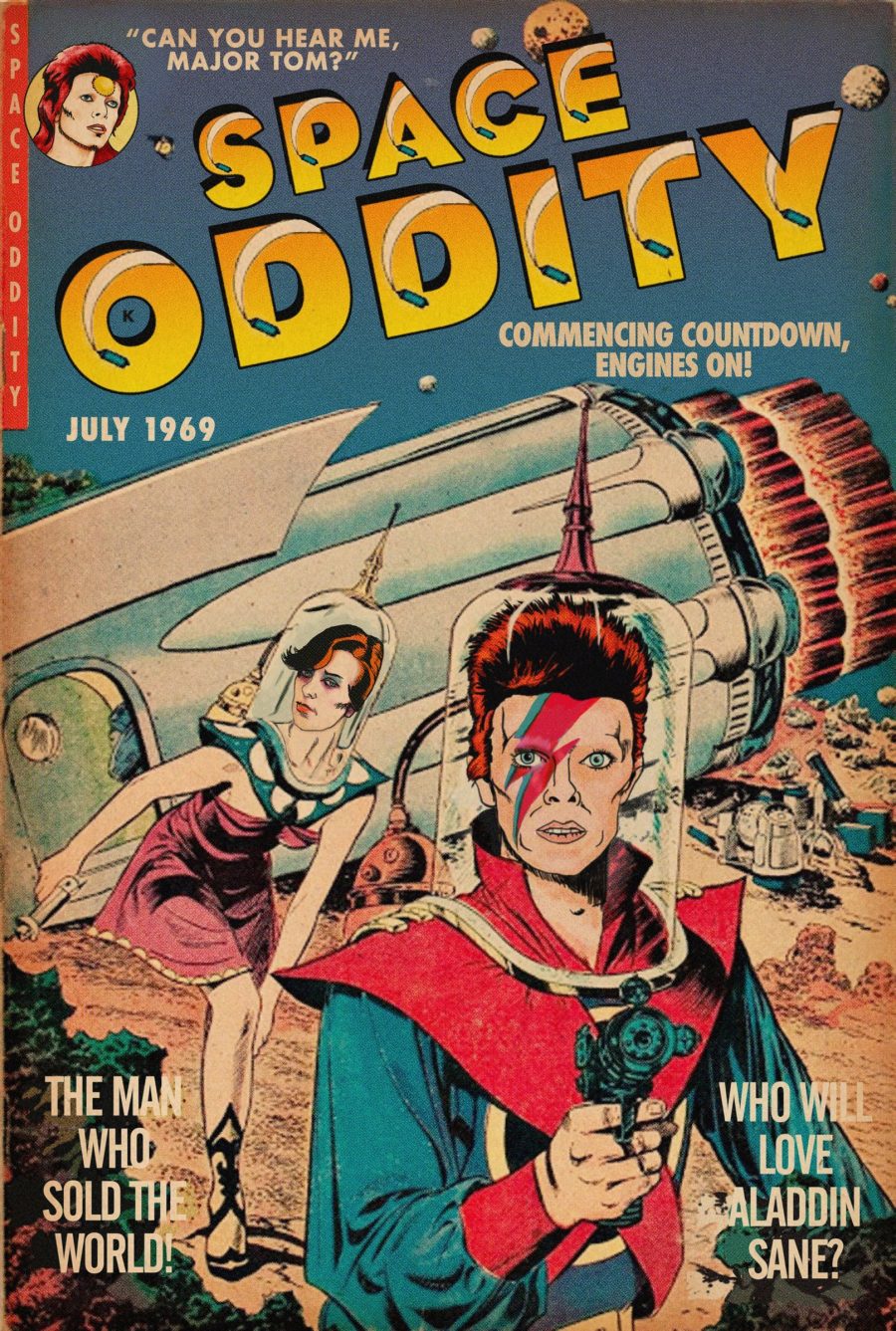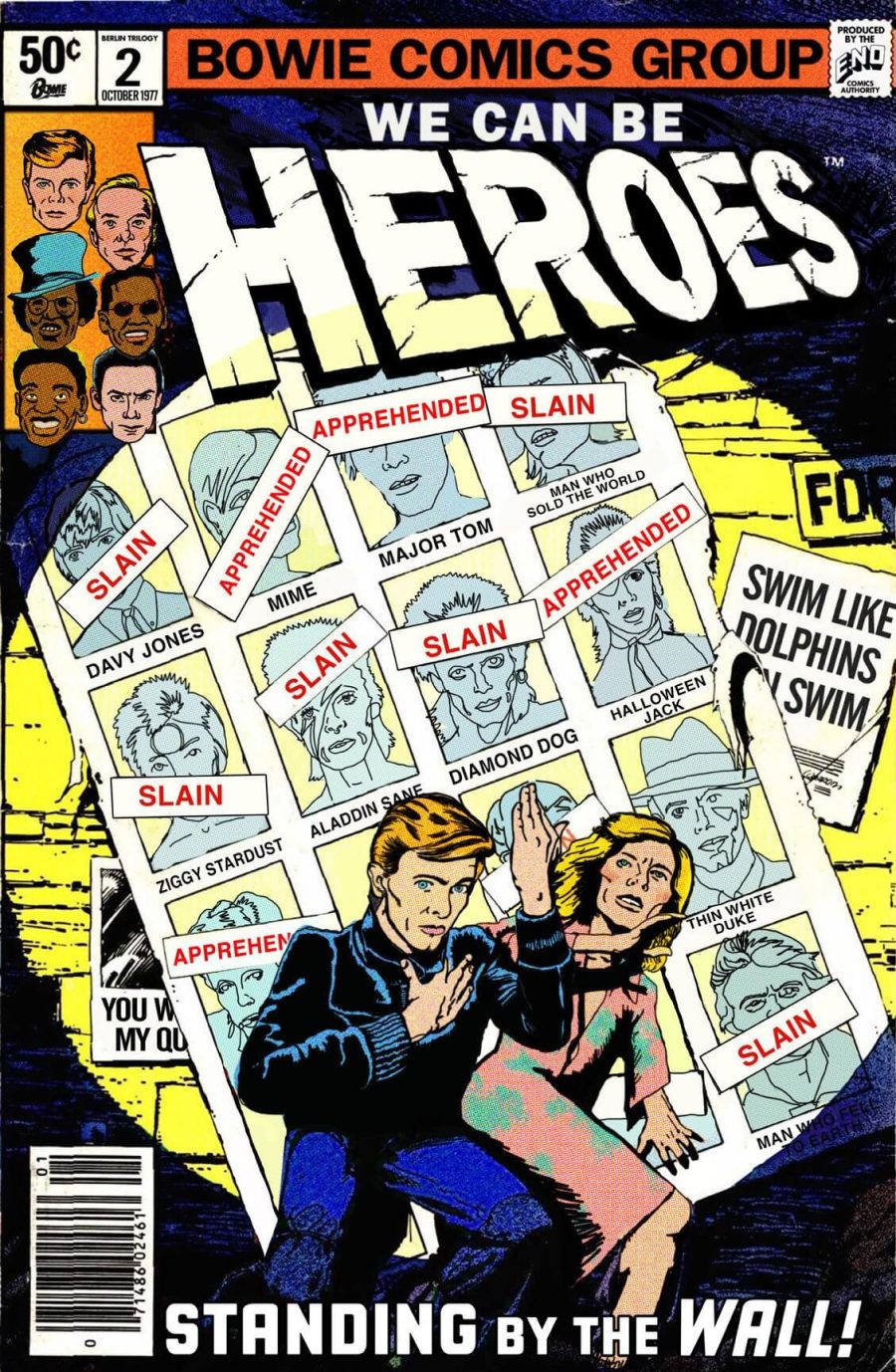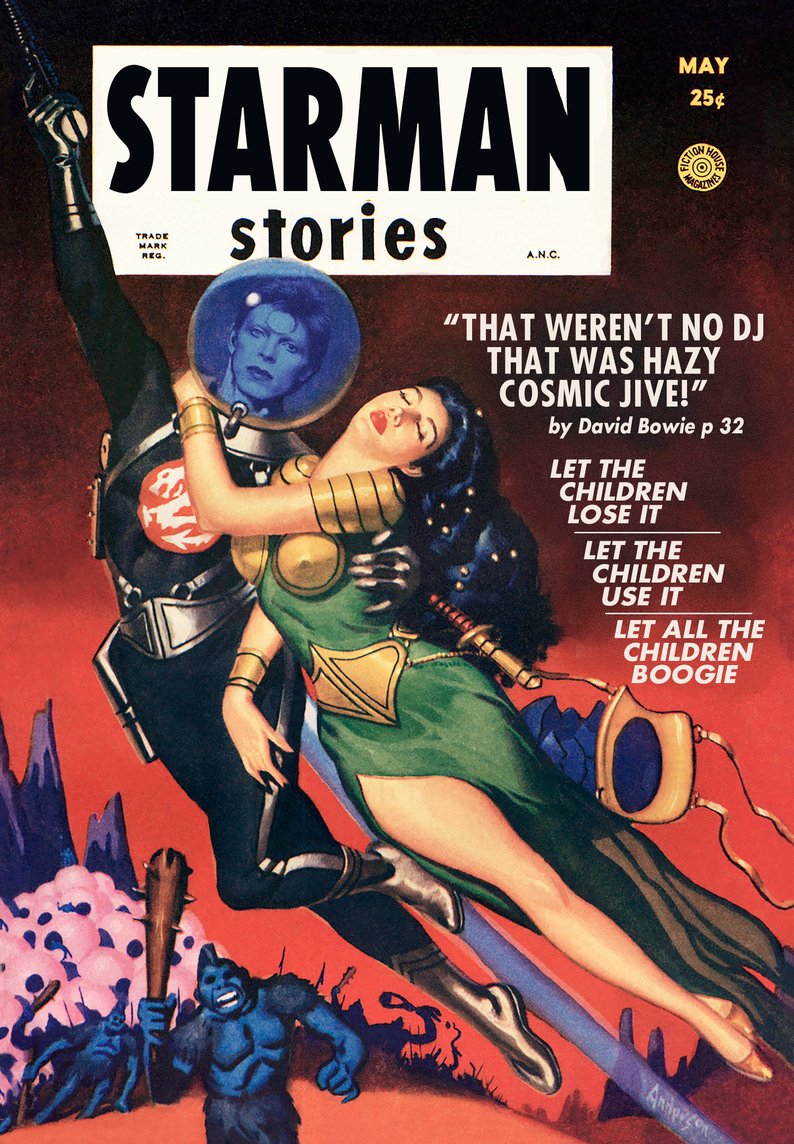[Most Recent Entries] [Calendar View]
Monday, September 16th, 2024
| Time | Event |
| 5:42a | David Bowie Songs Reimagined as Pulp Fiction Book Covers: Space Oddity, Heroes, Life on Mars & More
In the last year, screenwriter Todd Alcott’s hobby has blown up into a legit side career. This Etsy seller isn’t peddling kombucha SCOBYs, letter pressing new baby announcements, or repurposing old barns for use as cutting boards. No, Alcott’s crafty fortunes fall squarely at the intersection of pulp fiction and rock and roll, with classic song titles, lyrics, and other cunning references replacing the cover text of pre-existing vintage paperbacks. David Bowie’s lifelong fascination with space travel, tortured anti heroes, and outrageous fashion make him a natural fit with Alcott’s ongoing project, which has lavished similar attention on such luminaries as Bob Dylan, Radiohead, Talking Heads, and Elvis Costello. As Alcott, who conceives of his mash ups as tributes to his long time musical favorites, told Open Culture: Bowie dressed as an androgynous alien, went out onstage and told his audience “You’re not alone, give me your hands,” I can’t think of a more encompassing gesture to a misfit. No matter how weird you were in your community, you would always find someone like you at a Bowie concert. During a time of my life when I felt incredibly isolated and alone, (Bowie was one of) the key artists who made me feel like I was part of a bigger world, an artistic continuum. Meanwhile, Alcott is tending to another continuum by posthumously pairing such late greats as Bowie and Queen’s Freddie Mercury (“co-author” of the deep sea-themed Under Pressure cover, above) with the sort of adventurous, occasionally steamy reading material that were among the hallmarks of their 1950s’ boyhoods.
Many of these items have found their way to used book and thrift stores, where, tattered and worn, they provide a vast trove for someone like Alcott, who browses with his favorite acts’ catalogues deeply imprinted on his mental hard drive. It must’ve been a grand day when he happened across the above 1970s sci fi cover. A few deft tweaks, and Life on Mars, a nonexistent “new adventure from the author of Space Oddity,” was born. (Hardcore fans, take note of the doctored publisher in the upper left corner)
Heroes, which takes its inspiration from the 1981 X‑Men comic Days of Future Past, is crammed full of such Easter eggs. Can you spot them all?
What a fitting tribute to the Starman’s enduring hold on the public’s imagination. Browse Todd Alcott’s Bowie-themed pulp fiction collection in his Etsy shop. Related Content: |
| 9:00a | The Real Reason Why Music Is Getting Worse: Rick Beato Explains Earlier this month, a North Carolina man was charged with generating songs using an artificial-intelligence system and configuring bots to stream them automatically, thus racking up some $10 million in illegal royalties. Though that amount no doubt startles many of us, in this age when legitimate musicians publicly lament the pittance they earn through streaming platforms, such a case probably comes as no surprise to Rick Beato. This past June, the prominent music YouTuber put out a video dealing with just that intersection of culture and technology, with the highly clickable title “The Real Reason Why Music Is Getting Worse.” Consider the question of how we evoke one particular cultural era rather than another. We can use its fashions, its slang, or its interior decoration, to name just a few possibilities, but nothing works as powerfully or immediately as its music. Most of us grew up in a world where the sound of popular songs changed dramatically every decade or so. This happened for many reasons, practically all of them downstream of developments in technology. Bluesmen electrifying their guitars; Frank Sinatra singing into microphones sensitive enough to pick up his nuances; the Beatles creating complex, often strange miniature sound worlds in the studio; rappers telling their stories over looped fragments of disco records: all of it was made possible by feats of engineering. Yet, in Beato’s view, technological progress has lately backfired on music, and both musicians and listeners are feeling it. The convergence of computers and music production is now complete, making any sound theoretically possible at virtually no cost. But “the creative dependence on technology limits the ability of people to innovate,” and “the overreliance on similar tools” brings about “a lack of diversity” and a persistence of formulaic trend-following. The ease of creation has caused “an oversaturation of music, making it harder to find really exceptional things.” This is taken to an extreme by the only-just-beginning avalanche of AI-generated songs (and the storm of lawsuits it has drawn). Of course, if I’d known back when I was growing up in the nineteen-nineties that all the music I wanted to listen to would be made instantly available at little or no cost, I’d have regarded it as the imminent arrival of heaven on earth. Presumably, the prospect would also have excited the adolescent Beato, bagging groceries to save up the money to buy Led Zeppelin and Pat Metheny albums in the seventies. Today, by contrast, “music is not as valued by young people. There is no sweat equity put into obtaining it, having it be part of your collection, having it be a part of your identity, of who you are.” Music, in short, has become both too easy to produce and too easy to consume. It would be easy for anyone under 30 to dismiss Beato’s argument as that of a middle-aged man reflexively insisting that things were better in his day, when we knew the value of an album. But even the youngest generation of music-lovers must, at times, feel a certain dissatisfaction amid this endless abundance. To them — and to all of us — Beato says this: “Vote with your attention” by trying to listen to music deliberately, without distraction. Personally, I recommend listening to not just full albums but complete discographies, which at the very least cultivates a certain discernment. And to cross the musical landscape ahead of us, we’ll need all the discernment we can get. Related content: Based in Seoul, Colin Marshall writes and broadcasts on cities, language, and culture. His projects include the Substack newsletter Books on Cities and the book The Stateless City: a Walk through 21st-Century Los Angeles. Follow him on Twitter at @colinmarshall or on Facebook. |
| << Previous Day |
2024/09/16 [Calendar] |
Next Day >> |
